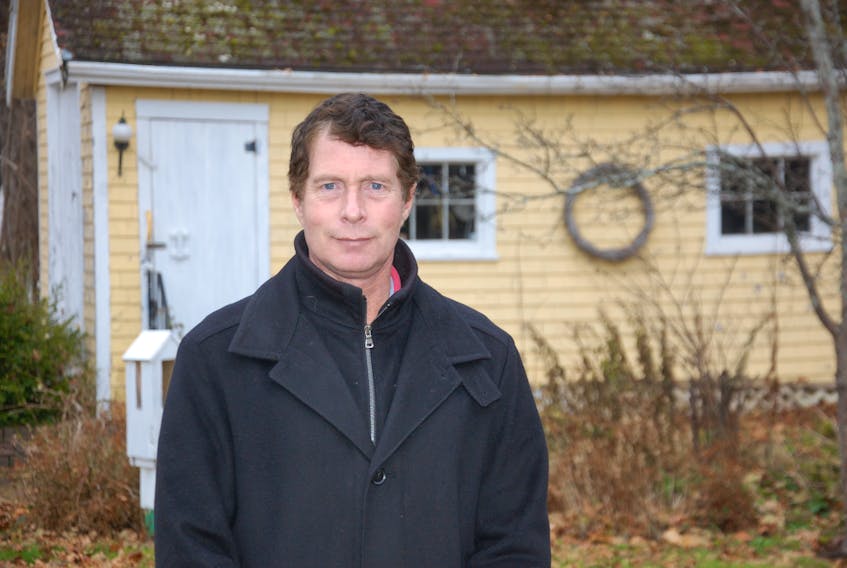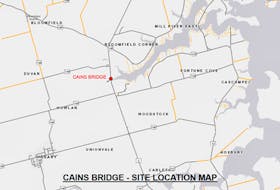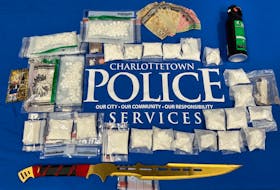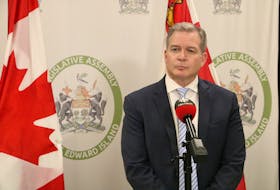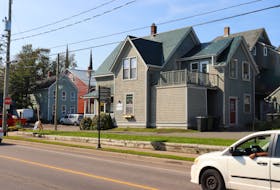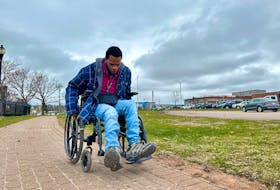Drug addiction cost Grant Matheson a marriage, his cherished profession as a family doctor — and nearly his life.
“I am lucky to be alive,’’ he says.
“I almost died.’’
Matheson overdosed on drugs at least twice. Booze too was abused to destructive consequences.
First, he popped Percocet. He advanced to taking Dilaudid and Demerol intravenously.
Injecting drugs, he frequently got infections that required putting himself on antibiotics.
Most damaging, however, was the wrench-like grip drugs grew to have on the once well-respected doctor.
As he describes in his new book, “The Golden Boy: A Doctor’s Journey with Addiction”, narcotics had taken a firm, relentless hold.
“I loved everything about my drugs: the intoxicating scent, the thrill of possibly being caught with them, the way they made me forget about my problems and made me feel everything while feeling nothing,’’ he writes in the candid account of his battle with narcotics.
In a lengthy interview with The Guardian last week, Matheson talked about his harsh and humbling plummet from the esteemed life of a family physician on P.E.I.
He believes having easy access to drugs – he would simply hop from one pharmacy to the next to deceptively feed his habit — and possessing a personality as a sensitive person who took on more than he could deal with in a healthy manner proved a catastrophic combination.
He would inject throughout the day, in between patients, just trying to get through each day.
All along he went to incredible extremes to dodge detection, including the time when he felt the net closing in on him that saw him scrape his arms on rose bushes in an attempt to conceal track marks.
“It was like I was playing Russian roulette all the time, and one of these times the bullet was going to be there,’’ he says.
“There’s such a financial incentive (remaining a doctor) to conceal this. I was so sick I just couldn’t stop.’’
Eventually, the P.E.I. College of Physicians and Surgeons helped put an end to Matheson’s destructive path, in the end suspending the doctor.
Matheson ended up in rehab in Ontario – an intense one-month recovery that is detailed in the book in thoughtful, honest reflection.
Matheson does not look to pass blame. He credits the college with doing as much as it could.
“Their hands were tied in red tape,’’ he says.
“I was the one that was wrong. In the end, they’re the ones that saved my life because they’re the ones that got me to get help.’’
P.E.I. College of Physicians and Surgeons registrar Dr. Cyril Moyse was not willing to discuss Matheson’s case.
However, he notes the college is “not in the business of trying to get people out of practice, but public safety is the key.’’
Moyse adds that P.E.I. physicians are likely no different from any others in the country and that roughly 10 per cent have the potential for addiction.
Matheson concedes that the college’s mandate is not to get him or any other doctor well but rather to ensure the public’s safety.
However, he would like to see the Medical Society of P.E.I. put more effort into its group that helps physicians at risk by being more proactive and through better promotion of the service.
“I think the medical society has to pick up on this and have some way that a physician can maybe go to someone at the medical society who is maybe not a physician, maybe someone else that doesn’t have to turn around and report them or have someone like me who is not licensed and can talk to them and give them direction,’’ he says.
“The more you hold this in, the sicker and sicker and sicker you get. Drug addiction once it crosses a line, it just never gets better. It just gets worse.’’
Matheson was thrilled to return to work in 2007, but after practising for another five years, a heavy return to the bottle and a subsequent family intervention led him back to rehab.
He last took drugs 12 years ago, and his last drink was Jan. 26, 2013.
He is in a good place today, living in Charlottetown with his new wife, a nurse named Paullette MacPhee, and his teenaged daughter.
He describes his physical health as “good’’ and notes staying clean is “relatively easier now compared to what it was.’’
He is busy today promoting his book, keeping the house – and himself – clean, caring for his youngest daughter (he also has two adult daughters), hitting the gym and doing some public speaking.
Matheson, who is drawing on disability insurance, believes he could get his license to practise back if and when he chooses to reapply. He doubts that he will ever practise again in P.E.I. but finds the thought of working at Homewood Health Centre in Ontario, where he got cleaned up – twice – an enticing prospect.
For now, he is comforted in knowing that his book may help heal others.
“If I’m not able to actually one-on-one help people any more (as a doctor), maybe by putting myself out there and putting my story out there people who are either suffering with this or have a family member suffering with this, they can read that and say ‘wow, this guy got better and maybe there’s hope for my family,’’ he says.
“I’m a non-practising doctor who is in recovery,’’ he adds.
“I’m just Grant…the trade off is that I’m alive and I’m here for my family.’’
Infobox:
Book launch
Grant Matheson will be launching his book, “The Golden Boy: A Doctor’s Journey with Addiction”, at 7 p.m. Friday at Beaconsfield Carriage House, 2 Kent St., Charlottetown.

